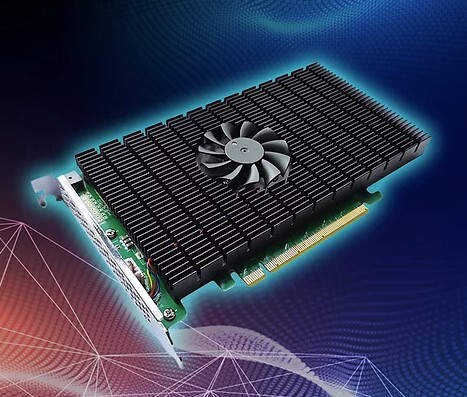RAID controller with up to eight NVMe SSDs and 55,000 MB/s from Highpoint


Highpoint has introduced two new RAID controllers for NVMe SSDs. Up to eight SSDs can be installed per such controller, which can work at a maximum of up to 55,000 MB/s. Therefore, read more about the new RAID controllers below and what you can use them for.
NVMe RAID controllers enable the highest transfer rates through a combination of modern PCI-E SSDs. The manufacturer Highpoint has now presented two new expansion cards for the PCI-E x16 slot, on which up to 64 TB of storage in the form of NVMe SSDs can be installed. The faster model is said to achieve maximum transfer rates of 28,000 MB/s and both cards offer support for RAID 0, 1 and 5. The Highpoint SSD7540 offers a fourth-generation PCI-E slot and is said to cost $1,029, while the Highpoint SSD7140E with Gen 3 should only cost 729 US dollars.
Expand PS5 with SSD: Compatible M.2 SSDs & heatsinks + installation tips
Although the built-in controllers offer eight mechanical slots, they can only address four SSDs with the maximum bandwidth, since this is the only way the full four lanes per SSD are available. If slower NVMe models are used, all SSDs can be fully utilized. The controllers are bootable under Windows and Linux and can therefore also be used as the primary storage medium.
Due to their dimensions of 285 x 111 x 21 mm, the expansion cards are not suitable for all cases and offer a large heat sink to successfully dissipate the waste heat of the SSDs and extend their service life. Provided the platform supports it, two such cards can be combined for maximum performance, almost doubling the maximum theoretical transfer rate to 55,000 MB/s and 28,000 MB/s respectively. However, the price and the acquisition costs of up to eight fast NVMe SSDs already make it clear that the two controllers are designed for the server area, where high transfer rates are very important, while one or two SSDs should usually be sufficient in the desktop area.
Source: tech powerup
Reference-www.pcgameshardware.de